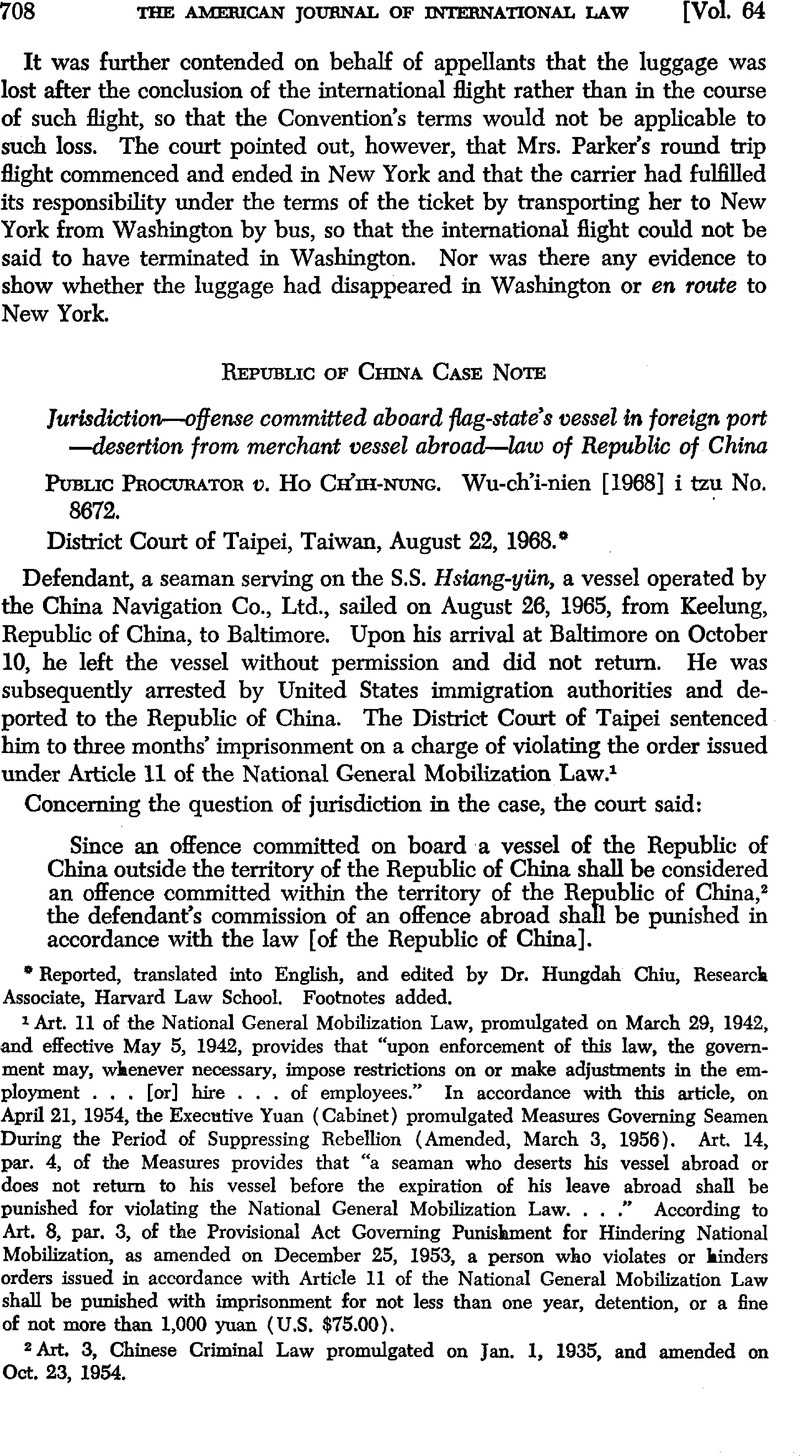No CrossRef data available.
Published online by Cambridge University Press: 28 March 2017

* Reported, translated into English, and edited by Dr. Hungdah Chiu, Research Associate, Harvard Law School. Footnotes added.
1 Art. 11 of the National General Mobilization Law, promulgated on March 29, 1942, and effective May 5, 1942, provides that “upon enforcement of this law, the government may, whenever necessary, impose restrictions on or make adjustments in the employment … [or] hire … of employees.” In accordance with this article, on April 21, 1954, the Executive Yuan (Cabinet) promulgated Measures Governing Seamen During the Period of Suppressing Rebellion (Amended, March 3, 1956). Art. 14, par. 4, of the Measures provides that “a seaman who deserts his vessel abroad or does not return to his vessel before the expiration of his leave abroad shall be punished for violating the National General Mobilization Law… .” According to Art. 8, par. 3, of the Provisional Act Governing Punishment for Hindering National Mobilization, as amended on December 25, 1953, a person who violates or hinders orders issued in accordance with Article 11 of the National General Mobilization Law shall be punished with imprisonment for not less than one year, detention, or a fine of not more than 1,000 yuan (U.S. $75.00).
2 Art. 3, Chinese Criminal Law promulgated on Jan. 1, 1935, and amended on Oct. 23, 1954.